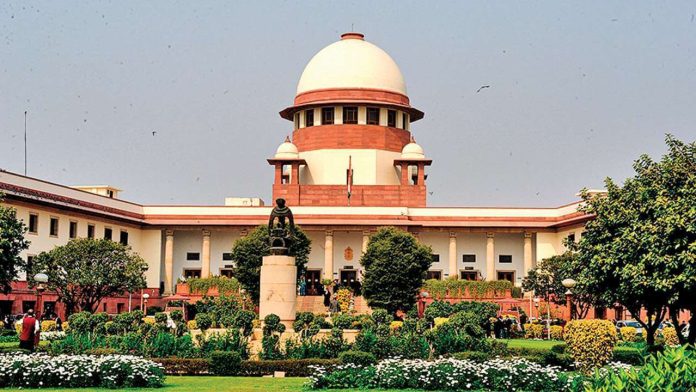All the petitions, including the Bengal government’s petition challenging the High Court’s May 22 verdict, came up for hearing before a bench of Justices BR Gavai and KV Vishwanathan. Justice Gavai said that reservation cannot be done on the basis of religion.
The Supreme Court has said that reservation cannot be given on the basis of religion. A bench of the Supreme Court headed by Justice BR Gavai made these oral observations while hearing a petition of the West Bengal government. They said that reservation cannot be given on the basis of religion. The West Bengal government had challenged the Calcutta High Court’s verdict that had rejected the classification of 77 communities (mostly Muslims) under the Other Backward Classes (OBC) category.
All the petitions, including the Bengal government’s petition challenging the High Court’s May 22 verdict, came up for hearing before a bench of Justices BR Gavai and KV Vishwanathan. Justice Gavai said that reservation cannot be done on the basis of religion.
The High Court had quashed the OBC status given to several castes in West Bengal since 2010 and declared reservation for them in public sector jobs and government educational institutions as illegal. “In fact, religion seems to be the only criterion for declaring these communities as OBC,” the High Court said in its judgment.
The High Court further said that singling out 77 sections of Muslims as backward classes is an insult to the Muslim community as a whole. While ruling on the provisions of the state’s 2012 Reservation Act and the petitions challenging the reservation given in 2010, the High Court clarified that the services of citizens belonging to the excluded categories who were already in service or had availed the benefit of reservation, who were already eligible, or were successful in any electoral process of the state, will not be affected by this decision.
In total, the High Court had set aside the reservation given to 77 categories between April 2010 and September 2010. It has also set aside 37 categories for reservation as OBCs under the West Bengal Backward Classes (other than Scheduled Castes and Scheduled Tribes) (Reservation of Vacancies in Services and Posts) Act, 2012. During the hearing on Monday, the Supreme Court asked the lawyers appearing in the case to keep a close watch on the matter.
Citing the High Court verdict, Sibal said the provisions of the Act have been struck down. “Therefore, there are very serious issues involved in it,” he said. “It affects the rights of thousands of students who want to get admission in universities, people who want jobs.”
Kapil Sibal urged the bench that some interim orders should be passed and the High Court orders should be stayed ab initio. The bench also heard arguments from other lawyers, including senior advocate PS Patwalia, who was representing some of the defendants in the case.
The Supreme Court said it will hear detailed arguments on January 7. While hearing the matter on August 5, the Supreme Court had asked the West Bengal government to provide quantitative data on the social and economic backwardness of the new castes included in the OBC list and their inadequate representation in public sector jobs.
Issuing notice to private litigants on the state government’s plea against the high court’s verdict, the Supreme Court asked the state to file an affidavit. The affidavit sought details of the deliberations, if any, held by the state Backward Classes Commission and the state government before including 37 castes, mostly Muslim groups, in the OBC list.
Related Articles:-
Winter vacations- Winter vacations announced in THIS state schools, see notification













